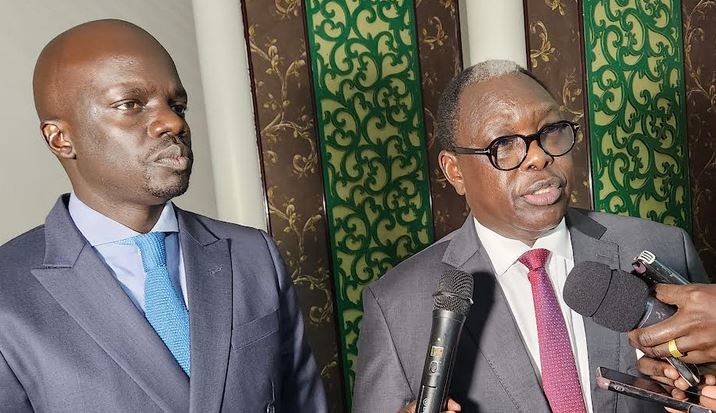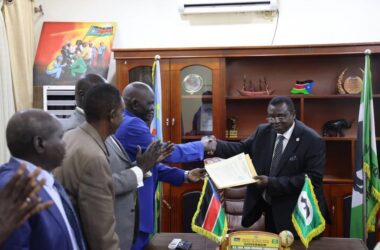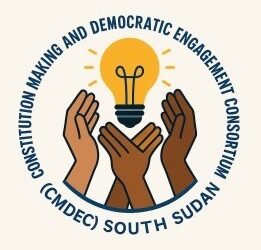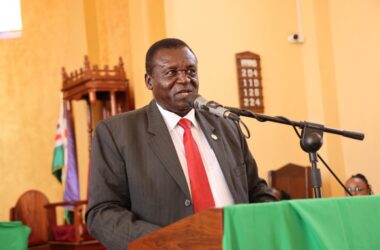By Yiep Joseph
Stakeholders in the peace agreement are calling on the Transitional Government of National Unity (R-TGoNU) to provide a comprehensive audit of the funds allocated over the past two years.
This demand follows the government’s proposal for a budget of over $600 million to support the implementation of outstanding tasks outlined in the peace roadmap after its recent extension.
The proposal has drawn criticism from members of the Reconstituted Joint Monitoring and Evaluation Commission (R-JMEC), who are insisting that the government clarify how it has utilized funds in previous years.
During an extraordinary session of R-JMEC on Wednesday, Cabinet Affairs Minister Dr. Martin Elia Lomuro stated that various institutions responsible for executing the roadmap have requested over $600 million to complete their obligations within the next two years.
“The total budget required by all election institutions stands at US$433,760,362. The High-Level Standing Committee will continue to engage these institutions to reduce the budget to an affordable amount,” the Minister said.
He said for the security sector mechanism, the budget is estimated at over 133 million USD, while for the National Transitional Committee (NTC), the budget is estimated at over USD95 million.
While Lomuro indicated a plan to reduce the budget, stakeholders are firm in their request for transparency.
They argue that before any new funding is approved, it is essential for the government to account for the approximately 10% of tasks that have been implemented to date.
Yar Manoa, representing the business community in R-JMEC, demanded the government reveal how much money they received and how they used it before proposing another huge budget.
“Now tell us, honourable minister, how are you going to work with us? We asked here in one of the sittings to give us the auditing of what you got, but that one did not come yet, today you are coming with other figures with no balance sheet we do not know,” Yar said.
“You (the government) asked for an extension of the roadmap in 2022, and we gave it to you, but you did not provide accountability; there was no auditing done by the Auditor General,” she added.
She urged the government to inform the public about the funds used to implement the 10% of the peace agreement.
She expressed that for the last six years, the revitalized government has failed to be transparent about how they are using public resources for peace implementation.
Yar added that the government continues to make changes even after being given extensions to complete pending tasks.
“The R-TGoNU for us now is from another planet; I do not know where it is coming from. We were together from day one until we signed the agreement, then when you went to the offices you changed colours, and today again you are coming with another colour,” she said.
“Another 24 of disappointment; the people are hungry; they wanted to know where the food was going to come next,” she said.
She doubted whether the government would deliver in the two years, adding that they did little in the previous extensions.
“10% of the peace agreement, and this 10% if I do my own calculations, that means you will need another 54 years to implement the other 90%,” she expressed.
In response to questions about how money was spent in previous years, Dr. Lomuro stated that the government is always prepared for accountability.
“We stand ready for accountability,” he said.
He also suggested that those who had doubts should review the government’s accounts.
In his part, Taban Christopher from civil society urged the leaders to focus on serving the people.
He urged the politicians to have financial discipline in the revenues meant for the implementation of the peace agreement.
Taban also appealed to the government to ensure that civic space is created in the country.
Previous spending
In 2023, the cabinet approved SSP 3.6 billion for the deployment of forces. However, questions remain regarding the financial management of previous initiatives.
In 2022, the Council of Ministers approved a work plan worth SSP 2.7 for the dissemination of the revitalized peace agreement. This budget, presented by the Minister of Peacebuilding, has yet to be clarified in terms of funding and expenditure.
For the 2023–2024 financial year, the government proposed an allocation of SSP 50 billion to the Ministry of Peacebuilding.
Early this year, the Finance Committee of the Transitional National Legislative Assembly sought answers from Cabinet Affairs Minister Martin Elia Lomuro regarding the use of $10 million designated for peace agreement institutions and mechanisms.
The institutions include the National Constitutional Review Commission (NCRC), the National Constitutional Amendment Committee (NCAC), the National Human Rights Council (NHRC), and the Judiciary Reform Committee (JRC).




